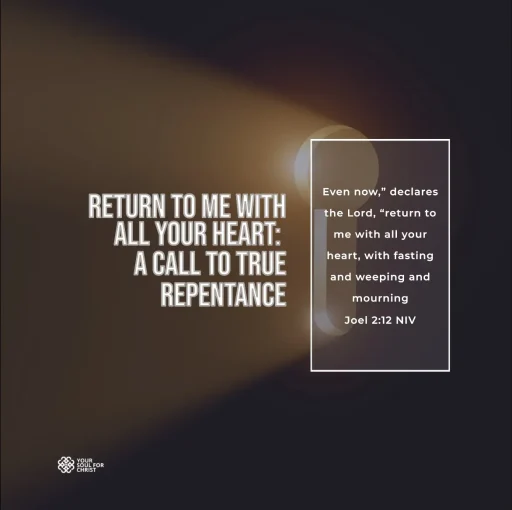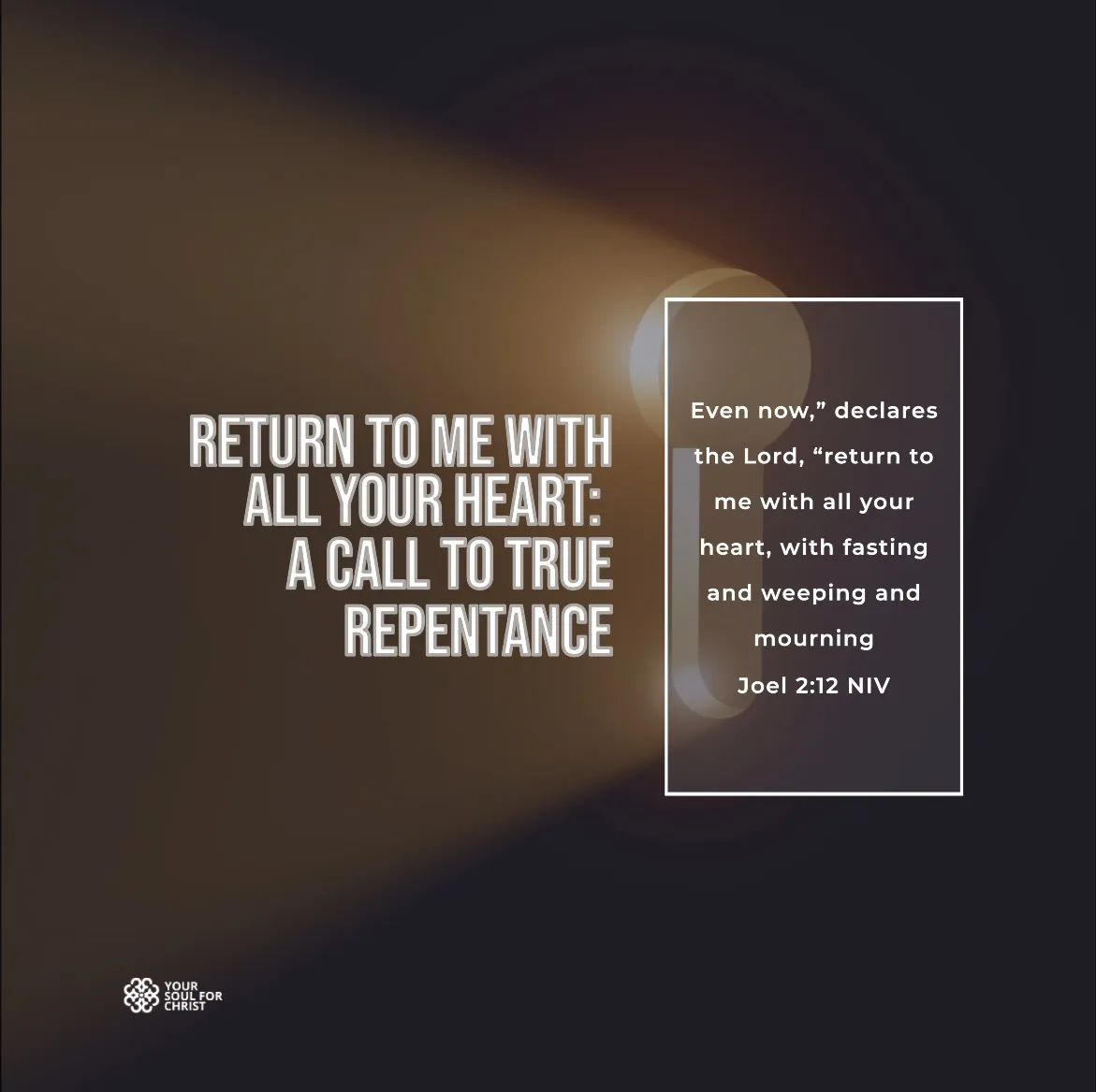Even now,” declares the Lord, “return to me with all your heart, with fasting and weeping and mourning
Joel 2:12 NIV
This verse captures the essence of biblical repentance. It does not simply call for superficial regret, but for a radical reorientation of the heart toward God. The phrase “even now” reveals urgency. God does not postpone His invitation until people perfect themselves or fix their failures. Instead, He interrupts human rebellion and apathy with an immediate summons to return for a complete restoration.
When God demands the heart, He insists on sincerity rather than performance. In the Old Testament, Israel often treated fasting and mourning as public displays rather than genuine contrition. God rejects such empty gestures. In Isaiah 58, He rebukes a people who fast while exploiting workers and indulging in quarrels, exposing the hypocrisy of ritual without justice. Joel’s command, therefore, echoes this deeper truth: true repentance must flow from the whole person, not from ritual acts that hide an unchanged spirit.
The verse also connects repentance with tangible expressions, such as fasting, weeping, and mourning. These actions express the weight of sin and the seriousness of returning to God. Yet God never reduces repentance to mere sorrow. Paul distinguishes between worldly grief, which produces death, and godly grief, which produces repentance leading to salvation (2 Corinthians 7:10). When read in light of Paul’s teaching, Joel’s command reveals that fasting and mourning serve as visible signs of an inward transformation that turns decisively toward God.
In Matthew 5:4, Jesus declares, “Blessed are those who mourn, for they shall be comforted.” This mourning reflects not only personal loss but also grief over sin and brokenness. Joel’s call and Jesus’ beatitude converge on the truth that godly sorrow opens the way to divine comfort and restoration. Similarly, James exhorts believers: “Grieve, mourn and wail. Change your laughter to mourning and your joy to gloom. Humble yourselves before the Lord, and he will lift you up” (James 4:9-10). Both Joel and James stress humility and brokenness as the path to God’s renewal.
Joel insists that returning to God requires a tearing of the heart, not just a nod of the head. In the next verse, he reinforces this when he says, “Rend your heart and not your garments” (Joel 2:13). Outward acts of religion, no matter how dramatic, cannot substitute for a heart laid bare before God. The imagery of fasting and mourning should not be dismissed as outdated ritualism, but embraced as powerful disciplines that cultivate sincerity, humility, and dependence.
The urgency of Joel’s call becomes even clearer when we remember that time is limited. God’s patience extends far, but it does not last forever. The prophets often remind the people that judgment follows if they refuse to repent. Jeremiah warns that those who persist in stubbornness will face calamity (Jeremiah 18:11–12). Jesus Himself echoes this urgency when He says, “Repent, for the kingdom of heaven has come near” (Matthew 4:17). To return “even now” means to return before it is too late, before the day of the Lord arrives in judgment. Joel frames repentance as both an opportunity and a warning: God opens the door today, but tomorrow is never guaranteed.
Ultimately, this verse points to God’s character. The invitation to return presumes that God welcomes back the penitent. Joel later describes Him as “gracious and compassionate, slow to anger and abounding in love” (Joel 2:13). Repentance never begins with human initiative; it arises in response to God’s mercy. So it is not of human worthiness but divine patience. No matter how far Israel strayed, God opened a path of return. That same truth resonates in the parable of the prodigal son in Luke 15, where the father runs to embrace the child who comes home in brokenness.
Joel’s verse, when set against the whole counsel of Scripture, presents repentance as urgent, serious, and hopeful. God demands the heart, not hollow ritual. He affirms fasting, weeping, and mourning when they rise from sincere grief over sin and a longing for renewal. He confronts sin with severity, yet He welcomes sinners with mercy. The invitation stands open: return with all your heart before it is too late, because God desires not destruction but restoration.
Living It Out
God’s call in Joel 2:12 is urgent: “Even now… return to me with all your heart.” Repentance is not about empty rituals but a genuine turning back to Him in humility and sincerity. Today, let us respond to His mercy, surrendering every area of our lives and trusting that He is gracious, compassionate, and ready to restore.

